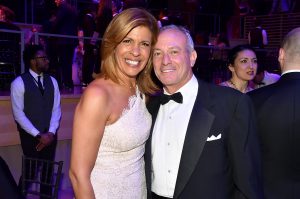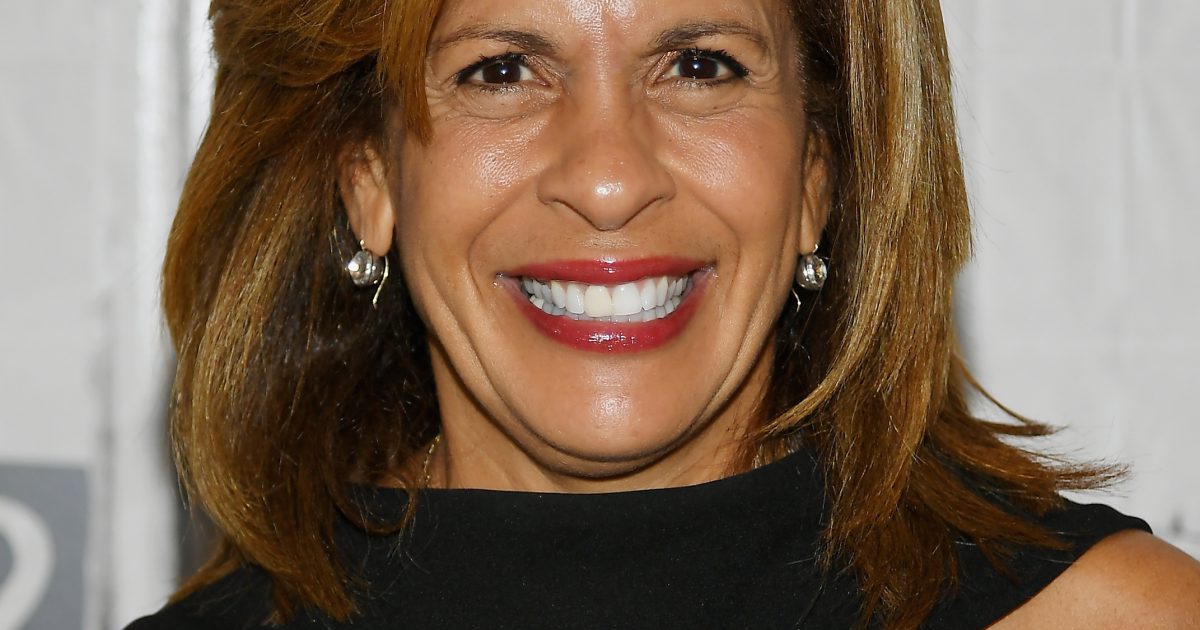Hoda Kotb Co-Parents With Ex-Fiance Joel Schiffman
- Today show co-anchor Hoda Kotb, a breast cancer survivor, and her ex-fiance Joel Schiffman are co-parenting their two adopted daughters amicably.
- She calls Schiffman, 64, a "great dad" eight months after the two ended their engagement in December 2021.
- In 2007, at 43, Hoda was diagnosed with breast cancer and underwent a mastectomy.
- Doctors discovered lumps in her breast during a routine exam.

 "He'll have a Saturday, and I'll do the Sunday. We switch each week," Kotb said of their schedule with daughters Haley, 5, and Hope, 3. "He'll take the girls and do some fun things, and I'll take some quiet time."
"He'll have a Saturday, and I'll do the Sunday. We switch each week," Kotb said of their schedule with daughters Haley, 5, and Hope, 3. "He'll take the girls and do some fun things, and I'll take some quiet time."In 2007, Hoda underwent a mastectomy after being diagnosed with breast cancer. She and Schiffman, a financier, began dating in 2013, and adopted their daughters in 2017 and 2019 respectively.
They have two nannies and are "very open about fixing things."

The couple broke up in December 2021.
"Joel and I have had a lot of prayerful and meaningful conversations over the holiday, and we decided that we're better as friends and parents than we are as an engaged couple," Kotb told NBC viewers in January after viewers noticed her missing engagement ring.
The former "Dateline" correspondent told People she still feels she and Schiffman are on the "right road."
Hoda was diagnosed with breast cancer in February 2007 when she was 43 years old. Doctors discovered lumps in her breast during a routine exam. She went through a mastectomy and was thankfully declared in remission. Hoda had never had a mammogram before, and this experience led her to become an advocate for breast cancer prevention and awareness, not to mention body-positivity.
She shares her story as an example that others can get through it, too.
Breast Cancer Detection
Breast cancer is typically detected via a mammogram, the screening method for this type of cancer. Mammograms look for lumps in the breast tissue and early signs of breast cancer.
Women aged 45 to 54 with an average risk of breast cancer (i.e. no family history of the disease) should have mammograms annually. Dr. Connie Lehman, the chief of the Breast Imaging Division at Massachusetts General Hospital, says in an earlier interview, "If you haven't gone through menopause yet, I think it's very important that you have a mammogram every year."
"We know that cancers grow more rapidly in our younger patients, and having that annual mammogram can be lifesaving," says Dr. Lehman. "After menopause, it may be perfectly acceptable to reduce that frequency to every two years. But what I'm most concerned about is the women who haven't been in for a mammogram for two, three, or four years, those women that have never had a mammogram. We all agree regular screening mammography saves lives."
Breast Cancer Gene Mutations
Treatment options for breast cancer also include surgery (via a mastectomy or lumpectomy), chemotherapy, and radiation therapy. Some people also get preventative mastectomies if there's a history of breast cancer in the family and thus an elevated risk of developing the disease.
For women with an elevated risk of breast cancer this means they either have a history of breast cancer in the family, or they have the BRCA1 or BRCA2 gene mutation they should begin screening even earlier, before age 45.
While getting a mammogram, ask about dense breasts, which may obscure cancer. The technician will be able to do determine whether or not you have dense breasts.
Learn more about SurvivorNet's rigorous medical review process.


